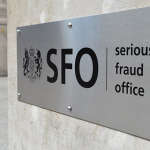In its latest plea for independence, The Solicitors Regulatory Authority (SRA) is making its case for separation from the Law Society in its response to Treasury’s call for information on its re-evaluation of the anti-money laundering (AML) supervisory regime.
The call comes ahead of the launch of the government’s consultation on making legal service regulators independent from their representative bodies, which will be issued this spring.
In its outline for consultation on the AML supervisory regime the government stated its intention to make the UK financial system a hostile environment for illicit finances, while minimising the burden on legitimate businesses and reducing the overall burden of regulation.
In its response, the SRA re-stated its ongoing claim that regulators should not be so closely linked with a representative body, ‘AML supervisors should be independent from interference or control from any representative body operating on behalf of the profession.’ The regulatory body added: ‘Consumers have greater trust in professionals who are regulated by an independent regulatory body, rather than by the profession itself.’
The SRA also criticised the Law Society’s limited powers to fine firms and in-house lawyers in contrast to the powers it has been awarded to fine Alternative Business Structures (ABS). Section 44D of the Solicitors Act 1974 limits the SRAs fining powers to £2000. If the body feels a heavier fine should be given it must refer the case to the Solicitors Disciplinary Tribunal, which has unlimited fining powers. The SRA is able to fine ABSs for up to £250m, with fines of up to £50m for management and employees.
The SRA said in its submission: ‘The structure of the business is not relevant as many traditional firms dwarf ABSs. Swifter settlement by the SRA without tribunal involvement would reduce the overall regulatory burden, benefitting all regulated businesses. This would also reduce delay, uncertainty and cost from those facing the disciplinary process and would support fast, fair and firm regulatory action.’
City of London chief executive Law Society David Hobart was the chief executive of the Bar Council during the last round of regulatory changes. Earlier this year, Hobart voiced his concern that the government had a lack of trust in the Law Society’s ability to perform its function well because of its reputation as ‘a large unwieldy democracy’. He is now awaiting the outcome of the government consultation on making legal service regulators independent from representative bodies.
Hobart told Legal Business: ‘In the debates around legal regulation, context is everything. Until we see that [consultation] document, we do not know exactly what the government will consult on, so it is really too early to comment further. To use a mountaineering analogy: we’re in the foothills at present, and the summit is hidden by clouds.’
madeleine.farman@legalease.co.uk
Read more about regulation in the City in: ‘Taxation without representation – would you pay for the Law Society to represent you?’










